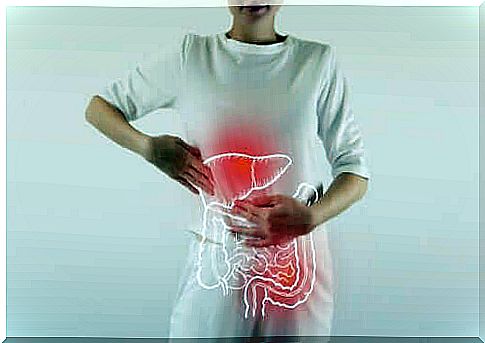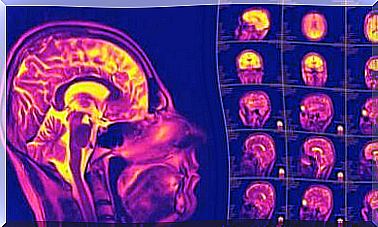Digestive Enzymes: What Are They Used For?
Digestive enzymes are responsible for turning food into simpler molecules so that they can be absorbed by the body. Without enzymes, food digestion would be impossible.

Digestive enzymes are molecules that are responsible for breaking down food into smaller portions so the body can absorb the nutrients it needs. These speed up chemical reactions by performing specific functions, and the digestion process could not be done without them.
You should know that the enzymes are found in different parts of the digestive tract: saliva, stomach, pancreatic juice, and even intestinal secretions. In addition, where they are is related to their function and the conditions they need in order to be able to activate.
What are digestive enzymes?
Enzymes are molecules, more commonly proteins, produced by the body. They carry out their function through many chemical reactions in the body, but all of them are specific and have unique substrates in which they work.
This means that although there are several types of enzymes, a deficiency of just one of them can produce certain problems. This is the case with lactase deficiency, the enzyme that breaks down milk sugar and causes lactose intolerance.

Types of digestive enzymes
As we mentioned, there are different types of digestive enzymes and each of them acts on a particular nutrient or substrate. Among these we find:
- Salivary and pancreatic amylase: converts starch into glucose
- Gastric and pancreatic lipases: they break down lipids into fatty acids and glycerol
- Cholesterolase and phospholipase : they break down cholesterol and phospholipids
- Proteases : they are secreted in the intestinal lumen in their inactive form, and are responsible for the breakdown of proteins
What are enzymes used for?
As we mentioned, without enzymes, the nutrients in food cannot be broken down, and the body cannot absorb them. Their action is quite complex, so to better understand it, we will detail their way of acting below.
1. Carbohydrate breakdown
The breakdown of this nutrient begins in the mouth, where salivary amylase begins to work. Often its effect is limited because it depends on the chewing time.
A study published in the international journal Molecular Sciences suggests that if you chew white bread a lot, you may experience a slight sweet taste. This is explained by the degradation of starch.
Pancreatic amylase continues the degradation process. The juices produced in the pancreas are released when the stomach empties its contents into the small intestine. Some enzymes are found in pancreatic juices, as well as in lipases and proteases.
Finally, the simpler units of carbohydrate, glucose, fructose and galactose can be absorbed by the body.

2. Protein degradation
The digestion of protein begins in the stomach with gastric pepsin, produced by the stomach. Much of the protein digestion takes place in the first and then the second portion of the small intestine, where pancreatic proteases work.
These proteases arrive in the intestine in an inactive form. If they were activated before this stage, they could self-digest the pancreas and generate major complications.
3. Fat degradation
Digestion of lipids begins in the stomach with gastric lipase and accounts for 10% of the digestion process. Then, the pancreatic lipase continues this action when the fats arrive in the intestine , this step represents 90% of the breakdown of fats.
In order for the enzymes that break down fat and cholesterol to work properly, we need bile. The latter is produced by the liver and is stored in the gallbladder.
With the arrival of fats to the intestinal lumen, and by nerve signals, the bile is released to work with the l ipases, phospholipases and cholesterolase.
Factors that affect the production of enzymes
There are many factors that can affect the production or function of enzymes. Here are some of the most common situations:
- Deficient diet
- Gastrointestinal disorders and intestinal malabsorption
- Pancreatic insufficiency
- Cystic fibrosis
- Aging
- Etc
What should we remember about digestive enzymes?
Digestive enzymes play a very important role in breaking down the nutrients in food. So when the body is functioning properly, enzymes work optimally in the metabolism of carbohydrates, fats and proteins.
However, when one is suffering from a metabolic disease or other condition that impairs the production of enzymes, food may not be broken down as it should. Hence, it will generate malabsorption or malnutrition.









